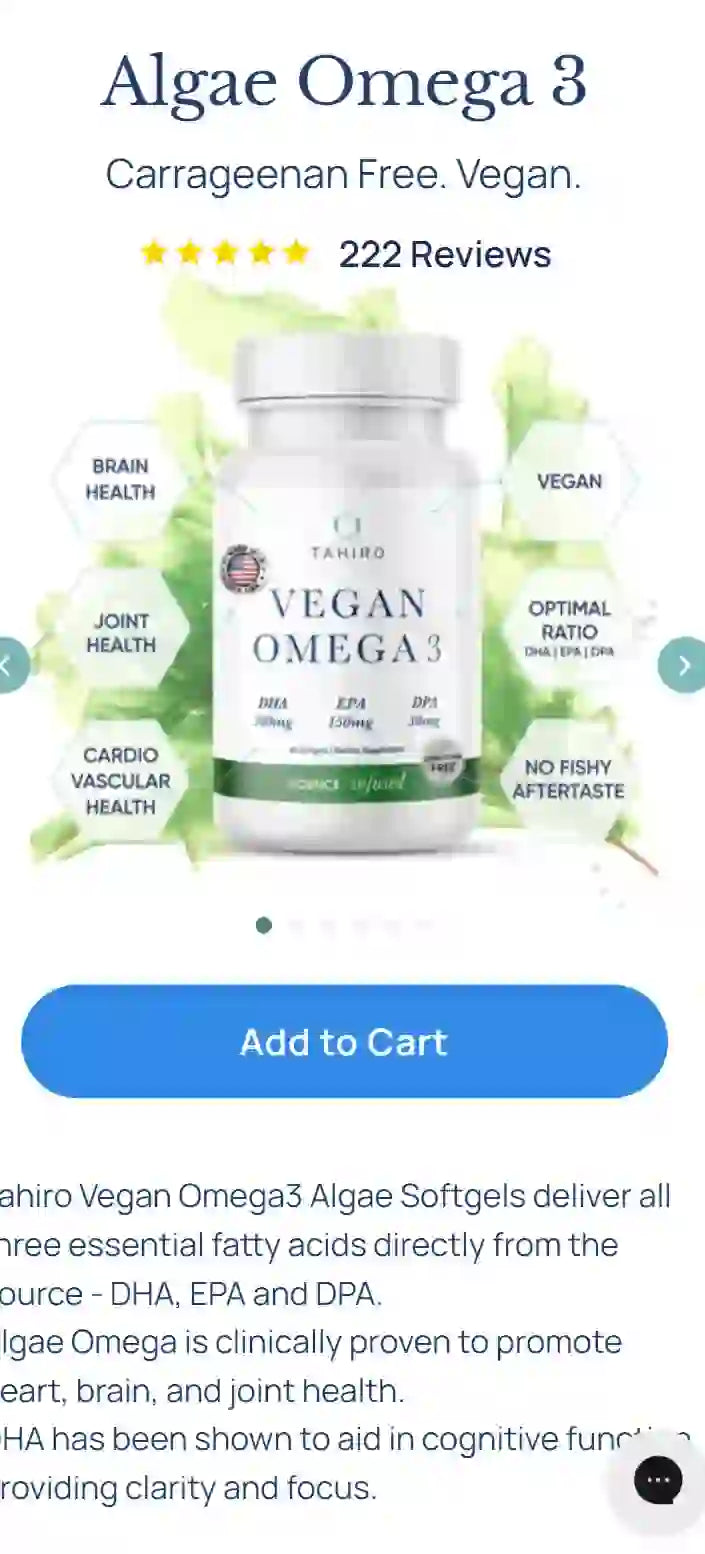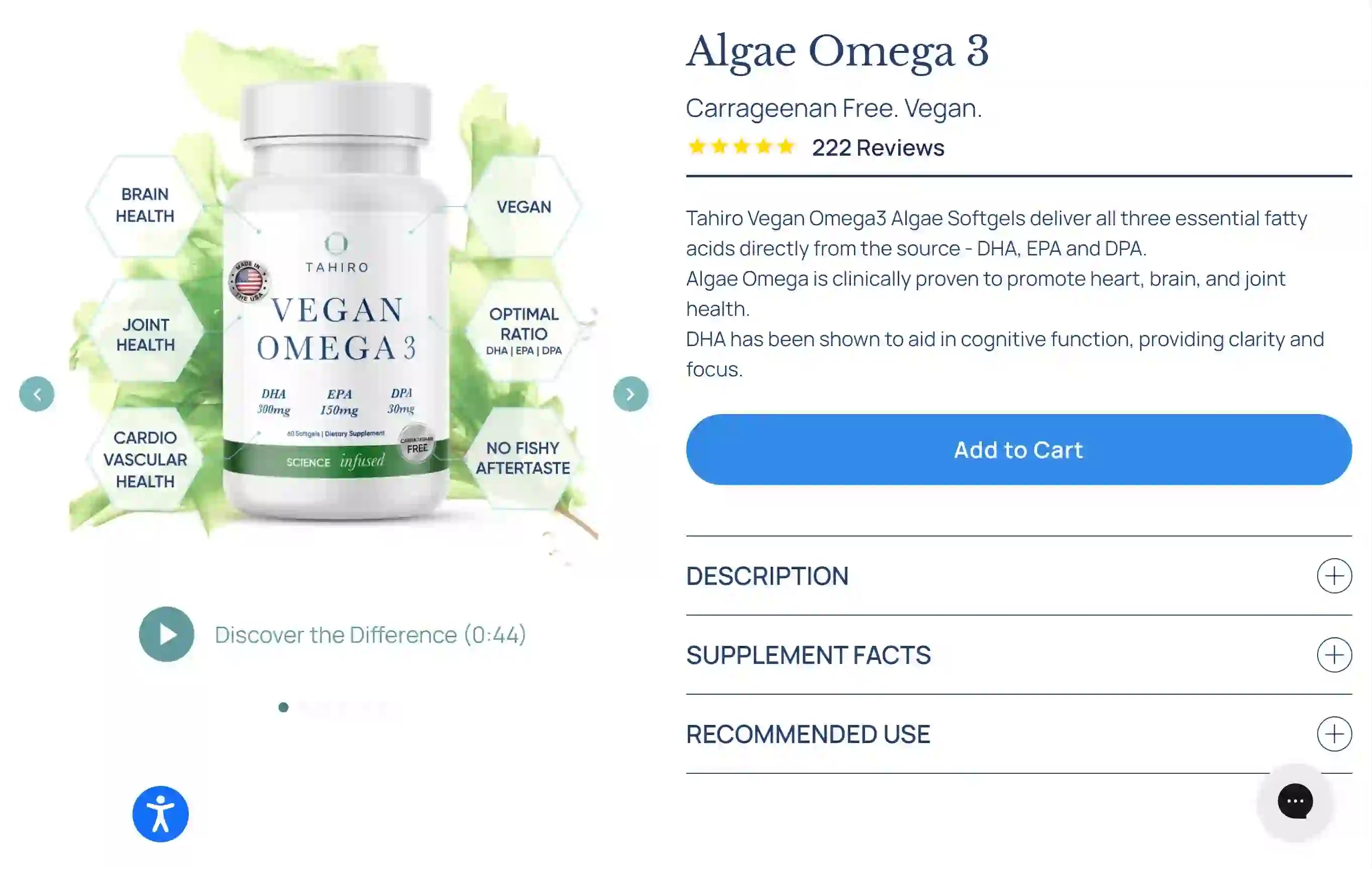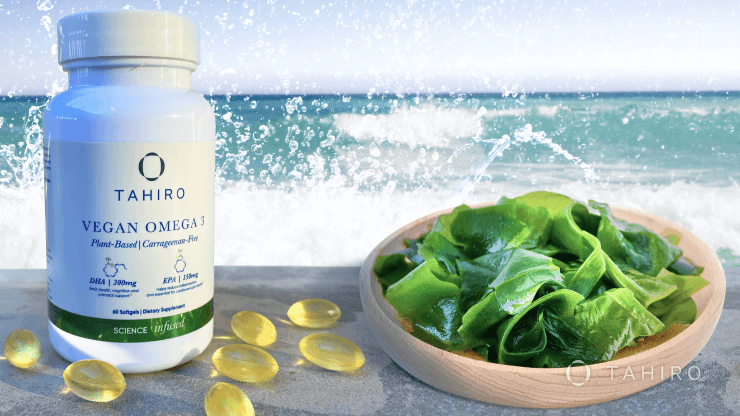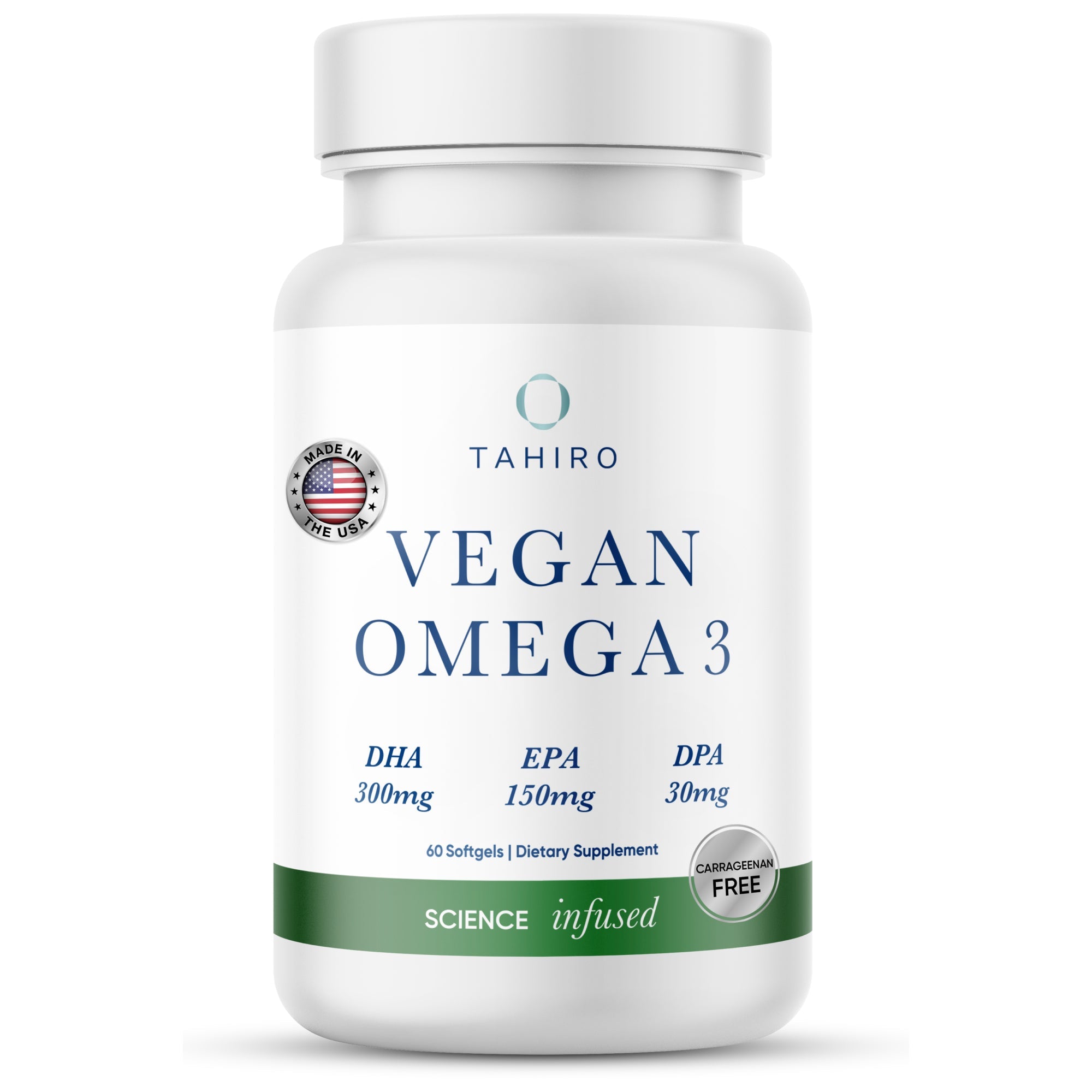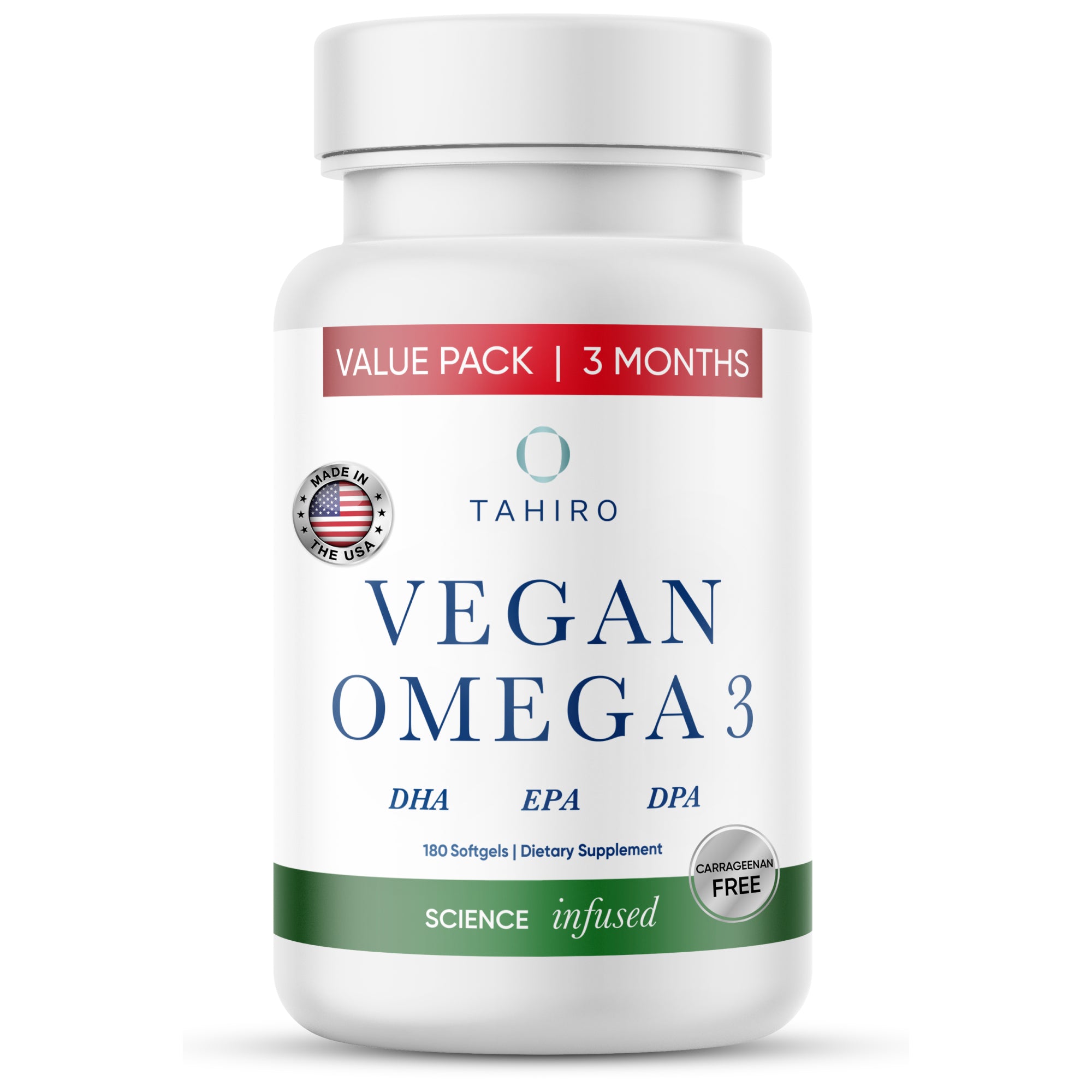Did you know that omega-3 fatty acids are essential for maintaining optimal health, particularly brain health? Despite this, many individuals are not getting enough of these vital nutrients through their diet alone. The good news is that supplements can help bridge the gap and provide the necessary omega-3s for overall health.
Fish oil supplements have long been the go-to source of omega-3s, but for those on a plant-based diet, a vegan option may be preferred. Interestingly,carefully curated vegan omega-3 supplements can contain the same essential fatty acids as fish oil, including EPA, DHA, and DPA. In fact, recent research has shown that vegan omega-3 supplements can be just as effective as fish oil supplements in providing the necessary omega-3s for optimal health.
This article will discuss the importance of omega-3 fatty acids for overall health, the different types of omega-3s, and the benefits of carefully curated vegan omega-3 supplements.
The Different Types of Omega 3
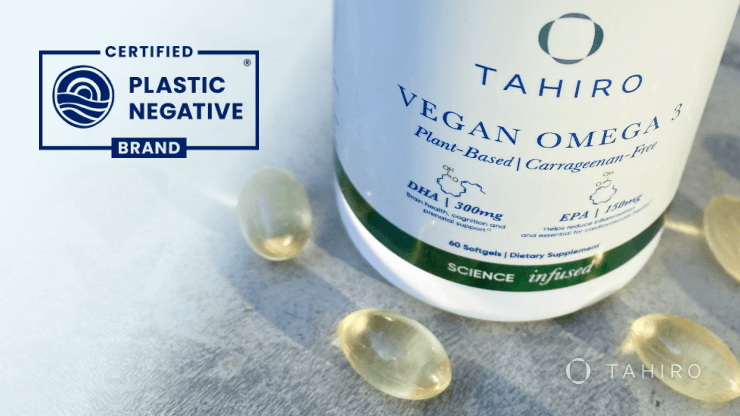
Omega-3 fatty acids are incorporated into the membranes of cells throughout the body and brain, and have wide-ranging effects across a variety of body systems. Not all omega-3s are the same; this is a group of compounds, which contains several different specific fatty acids. What they all share in common is that they contain a chemical double bond between the third and fourth carbon atoms from the end. Other factors, like the length of the fatty acid chain, vary between different omega-3s.
In general, omega-3 fatty acids are considered an essential nutrient. Your body can’t make these compounds, so you have to consume them, either through food or through supplements. Some of the main omega-3s include:
- Eicosapentaenoic acid (EPA)
- Docosahexaenoic acid (DHA)
- Docosapentaenoic acid (DPA)
- Alpha linolenic acid (ALA)
Research has shown that EPA and DHA have important health benefits [1]. They play a role in reducing inflammation throughout the body, which is important for preventing and treating chronic diseases such as heart disease, cancer, and arthritis. In addition, they are essential for brain health and have been linked to improved cognitive function and a reduced risk of depression and other mental health conditions.
While both plant and animal foods contain omega-3s in general, there are also key differences in the specific types of omega-3s that they contain.
- Fish oil contains EPA, DHA, and DPA. These are long-chain omega-3s, meaning that the fatty acid chain is longer. This allows it to be more flexible and to incorporate more easily into cell & brain membranes.
- Many plant sources of omega-3s contain primarily ALA. This is a short-chain omega-3 fatty acid.
- Most plant foods lack EPA, DHA, and DPA. These include popular vegan sources of omega-3s like chia seeds and flax seeds.
Long-chain omega-3s, like EPA, DHA, and DPA, are known to be highly beneficial for brain health, cardiovascular health, reducing inflammation, and more. To get the full benefits of an omega-3 supplement, it’s crucial to ensure that you’re getting these long-chain omega-3s.
There is some interconversion of various omega-3s into each other in the body. In the past, many people believed the myth of omega 3 that as long as you consumed enough ALA, it would get converted into EPA and DHA. This is why so many people eat chia seeds or flax seeds to get their omega-3s, and may have heard that this is enough to maintain their health.
However, researchers have shown that the conversion of ALA into other essential omega-3s happens only minimally. In fact, only about 5% of ALA is converted into EPA, and less than 1% is converted into DHA. This means that getting enough of these essential fatty acids from plant sources is very challenging.[2]
What is the Best vegan omega-3 supplement?
For direct sources of EPA and DHA, algal oil is the best vegan Omega-3 supplement. It provides both essential fatty acids in amounts similar to those found in fish oil, making it highly effective for supporting brain health, reducing inflammation, and improving cardiovascular health (Mayo Clinic). Other vegan sources like flaxseed oil, chia seeds, hemp seeds, walnuts, and perilla oil are beneficial for their ALA content and additional nutrients, offering various health benefits while maintaining a sustainable and ethical profile (National Institutes of Health).
| Source |
EPA Content (per serving) |
DHA Content (per serving) |
DPA Content (per serving) |
Additional Nutrients |
Best For |
| Algal Oil |
150-300 mg |
300-600 mg |
Trace amounts |
Vitamin D |
Brain health, overall Omega-3 intake |
| Flaxseed Oil |
None (ALA only) |
None (ALA only) |
None |
Omega-6, Fiber |
Heart health, dietary fiber |
| Chia Seeds |
None (ALA only) |
None (ALA only) |
None |
Fiber, Protein |
Digestive health, protein boost |
| Hemp Seeds |
None (ALA only) |
None (ALA only) |
None |
Protein, Magnesium |
Heart health, protein intake |
| Walnuts |
None (ALA only) |
None (ALA only) |
None |
Protein, Fiber |
Snack option, overall nutrition |
| Perilla Oil |
None (ALA only) |
None (ALA only) |
None |
Omega-6, Omega-9 |
Heart health, balanced omega intake |
-
Conversion Efficiency: The body converts ALA to EPA and DHA at a rate of about 10-15%, meaning a higher intake of ALA is required to achieve the same levels of EPA and DHA found in fish oil or algal oil supplements (Harvard T.H. Chan School of Public Health).
-
Sustainability: Vegan sources, particularly algal oil, are more sustainable and environmentally friendly compared to fish oil, avoiding issues like overfishing and ocean contaminants (World Health Organization).
-
Purity and Safety: Algal oil is free from potential oceanic contaminants like mercury and PCBs, making it a cleaner and safer option (Environmental Working Group).
-
Dietary Suitability: Vegan Omega-3 sources are suitable for everyone, including vegetarians and vegans, ensuring inclusivity in dietary choices (Academy of Nutrition and Dietetics).
Is Omega-3 Good to Take Daily?
If you choose to take omega-3s, it’s generally recommended that you take them daily. As with any supplement, it’s up to you to decide whether you believe the potential benefits are worth the risks. It’s best to consult with your doctor as you make this decision, particularly if you have any chronic medical conditions or are taking any medications.
Traditionally, the advice has been to be careful about combining omega-3s with any type of blood thinners – even over-the-counter medications that cause blood thinning, like ibuprofen. The worry was that omega-3s reduce the risk of blood clots, so combining them with other medications that also do this might increase the risk of excessive bleeding.
While this is a reasonable concern, there’s now an abundance of scientific evidence demonstrating that omega-3s do not actually increase[2] bleeding risk. Although it’s always best to talk with your doctor before starting any new supplement, there’s also no evidence that taking omega-3s will increase your risk of bleeding.
Is Vegan Omega As Good As Fish oil?
Recent research suggests that vegan omega-3 supplements, particularly those derived from algae, can be just as effective as fish oil when it comes to providing the body with the essential omega-3 fatty acids it needs. In fact, some studies have suggested that vegan omega-3 supplements may actually be superior to fish oil in terms of their nutritional value and health benefits.
One study published in the Journal of the American College of Nutrition found that participants who took an algae-based omega-3 supplement experienced significant improvements in their cholesterol levels [3], while another study published in the British Journal of Nutrition found that vegan omega-3 supplements were just as effective as fish oil at reducing inflammation in the body [4].
Additionally, vegan omega-3 supplements are free from contaminants like mercury, which can be present in some fish-based supplements. Overall, the evidence suggests that vegan omega-3 supplements are not only as good as fish oil, but they may even be a better choice for individuals looking to support their overall health and wellbeing while also prioritizing sustainability and ethical considerations.
Which Type of Omega 3 is Better For the Environment?
When it comes to environmental impact, plant-based algae omega-3 is generally considered to be the better option compared to fish omega-3. Fish are often caught using unsustainable and harmful fishing practices, which can lead to overfishing and damage to marine ecosystems.
In contrast, algae-based omega-3 supplements are produced through a sustainable and environmentally friendly process that doesn't involve the capture of wild fish. Additionally, algae-based omega-3 supplements are typically free from contaminants like mercury, which can be present in some fish-based supplements.
Overall, if you're looking to incorporate omega-3 into your diet, plant-based algae omega-3 is a more sustainable and environmentally responsible choice.
Does vegan omega-3 have as many benefits as fish oil?
If you’re looking to get the full benefits of an omega-3 supplement, then you’ll want to make sure that you’re choosing one with balanced levels of EPA, DHA, and DPA. Because each of these compounds has been shown to have its own benefits, you need all of them to ensure that you’re not missing out on any of the benefits of omega-3s. In most cases, the levels of all of these long-chain omega-3s are very low in plant-based supplements. Fish oil usually contains EPA and DHA, although the levels are variable, and the levels of DPA in fish oil are generally low.
There are also plant-based sources of all three of these fatty acids. The advantage of using plant sources is that it avoids the potential mercury toxicity of fatty fish, and is also suitable for people following a plant-based diet.
Are There Vegan Omega-3s That Contain EPA And DHA?
Although most plant sources naturally contain minimal to no EPA, DHA, and DPA, it’s not impossible to get these nutrients through a plant-based supplement. It simply requires careful design and manufacturing.
Research has discovered that there are certain plant sources of all of these nutrients. By processing these plants in a way that preserves the delicate omega-3s inside, it’s possible to ensure that balanced amounts of all of the essential omega-3s make their way into the final supplement.
The scientists at Tahiro have revolutionized the supplement industry by designing a plant-based omega-3 supplement that contains all of the essential omega-3s. We’ve balanced EPA, DHA, and DPA ,to offer all of the benefits of omega-3 fatty acids in an entirely vegan supplement.
Try Tahoro’s Algae Based Omega 3
Not all Omega-3 supplements are created equal. Tahiro algae based Omega-3 Softgels are superior in its class, carefully formulated with quality sourced algal oil to deliver a perfectly balanced blend of the three essential fatty acids: EPA, DHA, and DPA. Each serving includes 40mg of DPA, 150mg of EPA, & 300mg of DHA, providing the nutrients that matter for optimal brain and body health.

